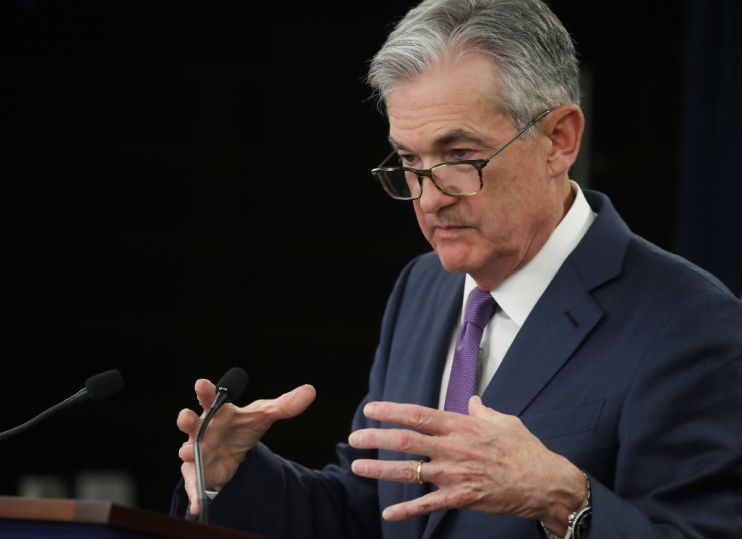US Federal Reserve lowers rates again but signals it is done cutting

The US Federal Reserve took the axe to interest rates for the third time in a row today, just hours after data showed the US economy slowed in the third quarter.
Read more: US economic growth beats expectations with Fed poised to cut rates
Fed president Jay Powell struck a more cautious tone than at past meetings, however, suggesting the central bank will not chop rates again in December.
“We see the current stance of monetary policy as likely to remain appropriate,” Powell said following the decision, “as long as incoming information about the economy remains broadly consistent with our outlook.”
That outlook predicts “moderate economic growth, a strong labour market, and inflation near our symmetric two per cent objective,” Powell said.
The Federal Open Market Committee (FOMC) opted for a third 25 basis point (0.25 percentage point) cut in as many meetings, taking the central bank’s target interest rate to between 1.5 and 1.75 per cent.
Powell said the FOMC “took this step to help keep the US economy strong in the face of global developments, and to provide some insurance against ongoing risks”.
“Business investment and exports remain weak and manufacturing output has declined over the past year,” the Fed chair said. He blamed “sluggish growth abroad and trade developments”.
The Fed’s decision came just hours after official data showed that annualised US economic growth slowed to 1.9 per cent in the third quarter.
Although the reading was above economists’ expectations, it marked a significant slowdown from the 3.1 per cent growth seen in the first quarter and the two per cent expansion of the second quarter.
Paul Ashworth, chief US economist at consultancy Capital Economics, said: “We still anticipate that a further deterioration in the incoming activity data will persuade the Fed to change tack and cut interest rates one final time in December.”
Powell cited signs of progress in US-China trade talks and a no-deal Brexit being taken off the table as reasons to think the economy will perform better than expected in the coming months.
Read more: Donald Trump reveals phase one of China trade agreement
Yet Ashworth said: “The ongoing trade talks introduce some uncertainty, but our guess is that even if a deal is agreed it is likely to be an underwhelming one that marks only a temporary truce in a much longer-running conflict.”
(Image credit: Getty)